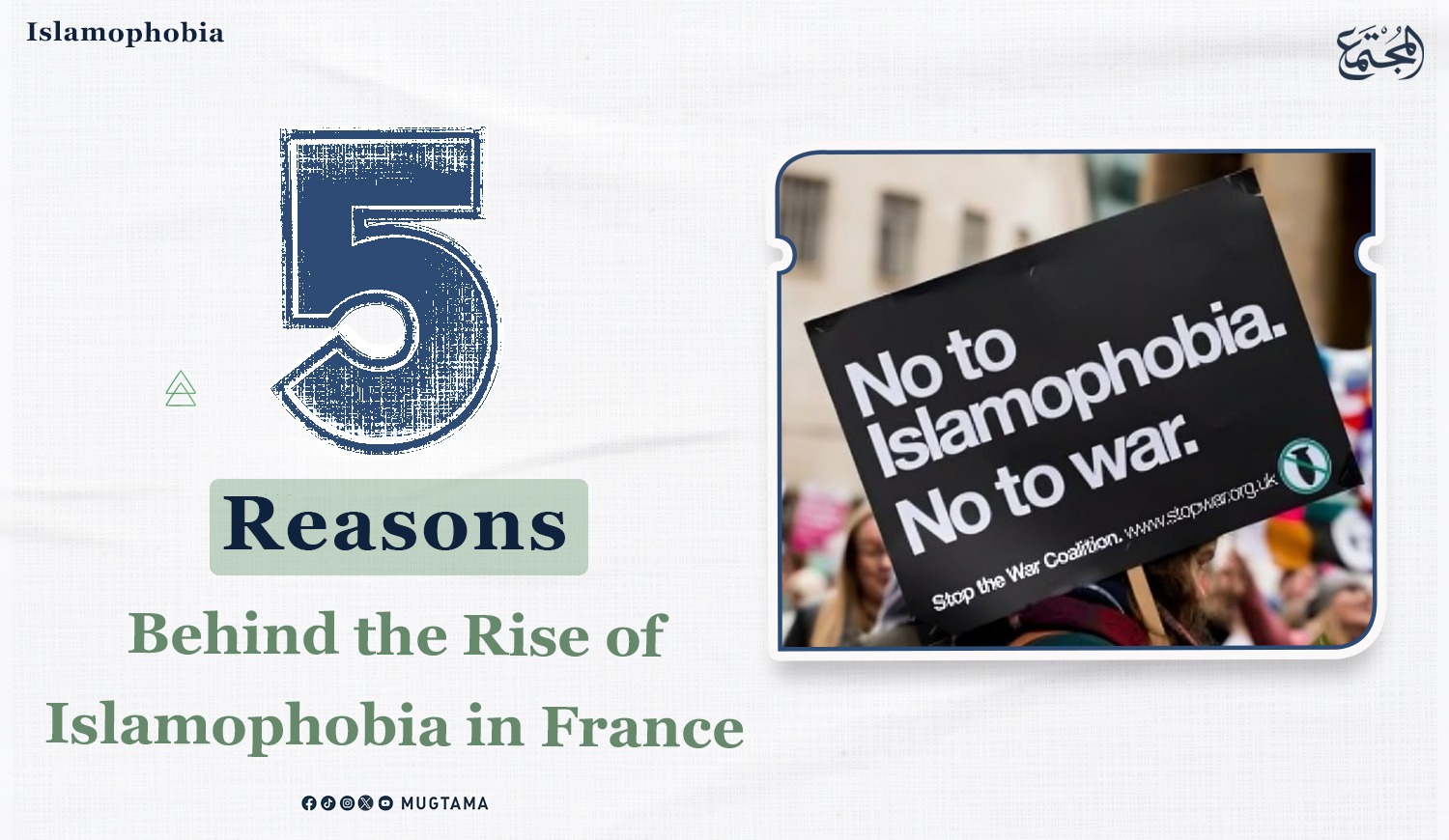Islamophobia is no longer limited to far-right
5 Reasons Behind the Rise of Islamophobia in France

Islamophobia is one of the most significant social and intellectual phenomena that has grown and expanded in Europe, especially in France, over the last two decades. While the fear or hatred of Islam is relatively old in some European societies, in France, it holds a particularity rooted in the complex history between the country and Islam. This complexity stems from a long colonial era and the growing presence of Muslim immigrant communities within French society.
In France, Islamophobia has become more than just fleeting
hate speech. It's a deep-seated phenomenon reflected in government policies,
media, education, and even laws that are passed from time to time. This has
made life increasingly complicated for Muslim minorities. Studies show that
Islamophobia is no longer limited to far-right movements; it is also finding a
voice among broad segments of French society, including some left-wing and
centrist groups that adopt a contradictory discourse under the banners of
integration or secularism.
Read also: Report
Exposes " Horrific Levels" of Discrimination Against Muslim Women in
British Media
The reasons for the escalation of Islamophobia in France can
be summarized in five key points.
1. The French Colonial Legacy
It's impossible to understand France’s complex relationship
with Islam and Muslims without looking at its colonial history, especially in
North Africa (Algeria, Tunisia, and Morocco) and other African countries. French
colonialism left a legacy of hostility and hatred, as Islam became
associated in the French collective memory with armed and cultural resistance
against French dominance. This colonial history has led some of the French
political and cultural elite to view Islam as a challenge to national identity,
rather than just another religion among many.
2. The Rise of Hardline French Secularism
The French state is founded on the principle of strict
secularism, a separation of church and state originally established to limit
the influence of the Catholic Church.
However, this principle has gradually transformed into a political and
ideological tool that often targets Islam specifically. Secularism is used as a
pretext to ban the hijab in schools, combat religious symbols, and tighten
control over Islamic associations under the guise of protecting the republican
identity. Thus, secularism in France, instead of being neutral, has become a
mechanism of exclusion and discrimination against Muslims.
3. The Rise of the Far Right and Islam as a Political Tool
Over the last two decades, France has witnessed a significant
rise of the far right, represented by political parties and figures like Marine Le Pen and the National Rally
party. They have framed Islam and the presence of Muslims in France as an
internal enemy that must be confronted. Economic and social crises have helped
fuel this hate speech, as Muslims are blamed for problems like unemployment,
terrorism, and crime. As a result, Islamophobia has become a popular electoral
tool used by politicians to rally votes by stoking fears of Islam and
immigrants.
Read also: French
Extremists Launch Racist Campaign Against Hijab-Wearing Moroccan Soccer
4. Terrorist Attacks and Their Security Repercussions
The terrorist attacks that France has endured since the
beginning of the millennium, particularly the Charlie Hebdo attack in 2015
and the Paris attacks in November 2015, were a turning point in the official
and public discourse toward Muslims. A large segment of the French population
began to directly link Islam and terrorism, even though Muslims themselves were
among the most affected victims of these organizations. Despite this, some
media outlets and political movements exploited these events to reinforce the
image of Islam as an “existential threat” to French national security. This has
led to tighter restrictions on mosques and Islamic associations and increased
security surveillance of anything related to Islam.
5. The Media and the Creation of a Negative Image of Islam
The French media plays a crucial role in promoting stereotypes
about Islam and Muslims. Media outlets exaggerate issues concerning the hijab,
the niqab, mosques, and Islamic associations, while rarely highlighting the
positive contributions of Muslims to French society. The constant linking of
Islam to terrorism, illegal immigration, and a separation from French identity
has cemented a distorted and negative image in the public's mind. As a result,
the media has become an essential partner in fueling institutional Islamophobia
within French society.
The rise of Islamophobia in France isn’t a recent development. It is the result of a long history of interactions between its colonial legacy, strict secularism, the rise of the far right, the security repercussions of terrorism, and the targeted role of the media. The danger of this phenomenon is that it not only affects the daily lives of Muslims but also threatens the principles of freedom and equality that France claims to uphold. The real challenge for French society today is whether it can overcome this crisis by building a model of genuine coexistence that recognizes Islam as an integral part of France's cultural and social fabric, or if it will remain a prisoner of fear, marginalization, and exclusion.










